I’ve just watched Stephen Oliver’s excellent documentary on Australian wine, and how it changed British drinking habits. The title, ‘Chateau Chunder,’ comes from a 1972 Monty Python sketch knocking Aussie wine.
This is not a wine for drinking. This is a wine for laying down and avoiding.
This reflects the attitudes towards Aussie wine in 1970s Britain. These attitudes were to change, though, and by the end of the 1980s, Australian wine had spearheaded an egalitarian revolution that changed the way that Brits approached wine, and brought what was previously an elite drink to the masses.
The documentary begins by showing how Australian table wine as we know it is a relatively recent thing. Although wine has been made in Australia since the 19th century, until the late 1970s the focus was on fortifieds. And the Australian drinking culture didn’t involve wine.
In the 1950s and early 60s if you drank table wine you were queer, or eccentric, or both. I had a girlfriend from university, from a country town, and her parents weren’t sure I was a suitable person because I was a plonkie.
Bruce Tyrrell
In 1965 exports of Australian wine were 8 million litres a year, one fiftieth of that of France. During the 1970s, exports of Aussie wine actually declined. But then came the revolution. By the early 1980s, Australia was 18th in the table of wine exportings; by the early 1990s it was 6th.
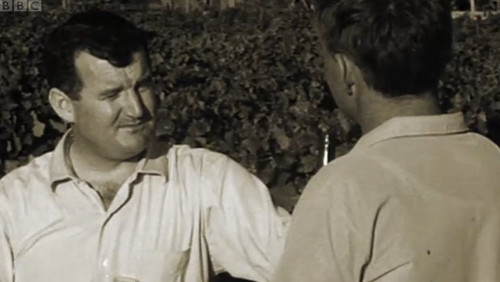
Len Evans was hugely important in helping raise the profile of Australian wine. He was founding director of the Australian Wine Bureau, which had a single overseas outpost: next to a sex shop in Soho. In the 1970s he ran a tasting for the Circle of Wine Writers in the UK. The wines were regarded pretty sniffily, but then Len served the same wines blind at lunch, and this changed people’s minds – he was immediately made a member of the circle.
Aussies invented the bag-in-box. By the mid-1980s over half of Australian wine market was taken by ‘goon bags’. There was even a drinking game involving a rotating washing line and a wine bag, called goon of fortune. The washing line was spun and whoever ended up under the bag had to drink some wine.
Still, in some circles, Australian wine wasn’t being taken seriously. Jancis Robinson, in her big spectacles era of the 80s, is shown presenting Penfolds Grange to a group of French wine experts. They dismiss the wine, suggesting it tastes ‘pharmaceutical’.

One thing the Australians mastered was wine marketing, whereas the French thought that the product would speak for itself. This gave the Australians a big advantage. Australian wine had an accessibility to it, and a sense of fun. It was democratic. The late John Avery is interviewed talking about an MW trip organized to visit Australian vineyards in 1985, the first of its kind. He estimates that 70–80% of the UK’s wine buying power was on this trip, and above all it was great fun. ‘In those days, we were nearly all men,’ says Avery, ‘and Rosemount arranged for a bottle of their Chardonnay to be posted to all the wives, with a note saying. “Your husband will be drinking this wine in Australia. Here’s a bottle for you to taste.” That was a brilliant marketing stroke, because everyone came back and all the wives said, “This is a wonderful firm. You must deal with them.”
One of the varieties that spearheaded the success of Aussie wines in the UK was Chardonnay, itself a relative newcomer to Australia. In 1970 the only company with the variety, known as white pineau, was Penfolds. Murray Tyrrell asked three times for cuttings, and each time was refused. So they nicked them at night. Australian Chardonnay was born.
Robert Joseph describes his first taste of Rosemount Chardonnay as being ‘a bit like seeing a naked woman for the first time.’ These were wines with new, bold flavours, and people fell in love with them.
It used to be double tequilas
That could prize off the pants of those sheilas
But now they won’t have it away, no way
For less than a large ChardonnaySir Les Patterson, Australian Cultural Attache
The 1980s were the era of Foster’s TV ads with Paul Hogan, and of Neighbours. The image of Australia in the UK was a positive one.
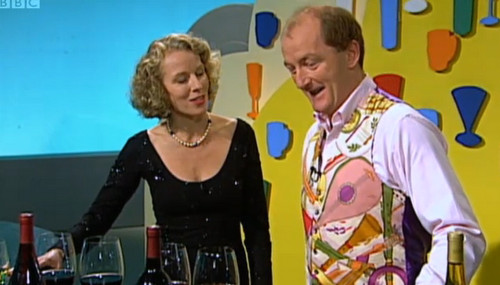
It was also a time when wine became a subject of broad appeal, helped by the BBC show Food and Drink. The wine segment was presented by two charismatic, larger than life characters, Oz Clarke and Jilly Goolden. ‘Jilly and I decided we were going to try and democratize the world of wine,’ recalls Oz. ‘It seems a bit silly, but we thought we could make a difference. We thought we could cut through class barriers.’
‘There was no point in using traditional wine speak,’ says Jilly. ‘So I decided to use my point of reference of what things smelt and tasted like, to describe wine as a thumbnail sketch. I was the first person in the world to do that.’
For all the jokey labels and sense of fun, the success of Australian wine was built on the foundations of quality. For example, Oz Clarke describes a bottle of Kanga Rouge 1978 he has in his cellar. It’s not plonk, he points out, showing that it comes from a premium wine region, Coonawarra, and that it was just 10.9% alcohol. ‘It tasted as rich and as juicy and as gorgeous as it could be. If people laugh about this, they don’t know what they are talking about.’
The more recent troubles of Australian wine have been precisely because, at the commercial end, quality has slipped. In the late 1990s large corporations targeted Australian wineries. Quality suffered as the take-overs resulted in a corporate drinks business mentality applied to wine.
‘Australia got caught up in its own hype and started believing its own bullshit,’ says Max Allen. ‘A lot of us at the time started to say is it really going to keep growing like this?…More vines were planted each year and quality started suffering. The world was flooded by substandard wine.’
Things are now changing for the better, though, after a few dark years. ‘All of us had had enough of Australia’s industrial junk, ‘ says Bruce Tyrrell. ‘And so we set out to get the things that were great about Australia’s wine back in front of the world.’
‘There’s more great wine being made in this country today than ever in its history,’ says Robert Hill Smith. ‘There’s more interesting wine; more diversity of wine style.’
‘We’re looking more at regionality and individual vineyard site,’ says Vanya Cullen. ‘Those wines which are about that sense of place rather than looking at how we are going to get the biggest crop or how we are going to make the most wine.’
For those in the UK, the programme will be available to watch on BBC iPlayer until 11:59PM Sat, 24 Nov 2012
5 Comments on Chateau Chunder, an interesting documentary about Australian wine reviewed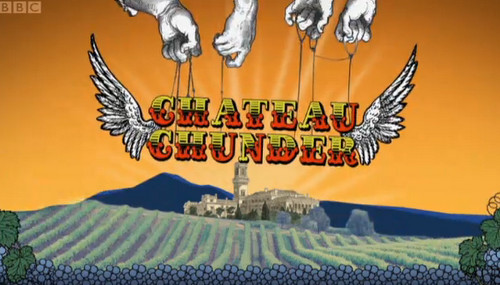
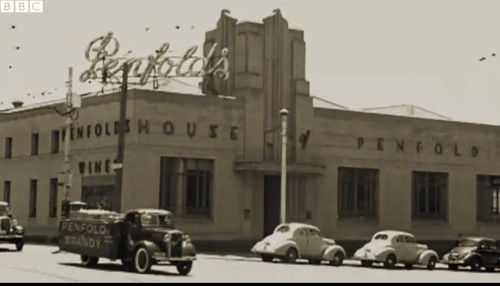
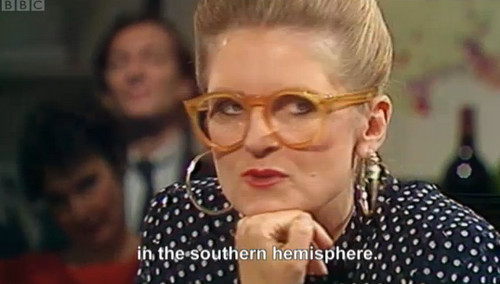
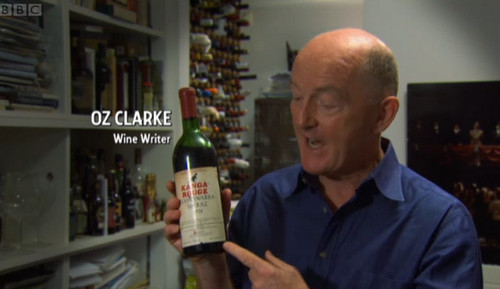
Hey Jamie, this was wonderful, and made for great reading. Loved the anecdote about Rosemount sending bottles of Chardonnay to the MW’s wives. Fantastic.
Looking forward to when we in SA (err, South Africa not South Australia) can watch the doccie.
Jamie
More of a summary than than a review, but entertaining to be reminded of a great documentary.
My only (slight) disappointment was that, after the final quotes above, it tantalisingly left off where most of us reading your blog get on. It didn’t cover the great new things happening in Australia as it builds on the 80s/90s success, i.e. less fruit/alcohol for its own sake, the impact of climate change on water supply and what that might do on volumes, new grape varieties etc… would have made a great part 2.
And I loved the contrasting interviews with Chapoutier & Colombo (I think) showing how the French perceived Australia
Fun, but I think misses some pretty important influences – eg. no mention of Oddbins. I also suspect Ghoulden of being (unsurprisingly) boastful about her contributions.
Thanks Hazza
Patrick – agree about the french interviews – thought poor old Jean-Luc got sent up a bit. Laure was good, though.
Alex, Ghoulden’s input reminded me of Al Gore inventor of the internet.
I guess “being setup” is all part of being a “dinosaur” and I like the Al Gore comparison!